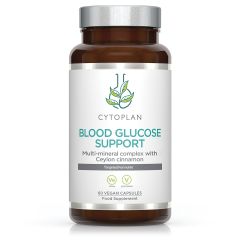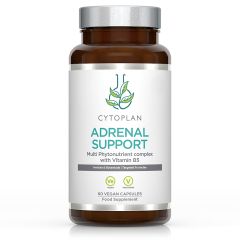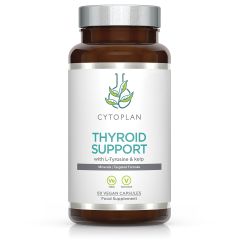Q: Why am I tired all the time and have no energy?
Feeling tired all the time (or TATT for short) is one of the leading reasons for GP visits, with an estimated 1 in 10 people experiencing prolonged fatigue at any one time. Often there is no obvious cause, but by making some changes to both diet and lifestyle, or adding in key supplements, you can help to support your body’s natural energy production.
Vitamins and nutrients for energy and tiredness
- With the exception of folate, all of the B Vitamins are involved in at least one, and often in several, of the steps of energy production by your cells – so a deficiency in any can leave you feeling tired.
- Magnesium is essential for producing energy from food. It also plays an important role in sleep, by regulating the sleep hormone melatonin.
- Iron plays an important role in transporting oxygen through the blood to your body’s tissues, where it is used at a cellular level to make energy. Your GP can test your iron levels, but supplementing with the mineral can often be beneficial for menstruating women.
- CoEnzyme Q10 (CoQ10) is a compound found naturally in the body which helps to generate energy in the cells by producing adenosine triphosphate (ATP); the body’s energy currency.
CoQ10 is concentrated in the mitochondria; the cells’ powerhouse, and plays an instrumental role in generating energy, as well as having an antioxidant effect. Our bodies naturally produce CoQ10, however our ability to do so does deplete with age, through stress, chronic illness or statin medication – so many people could benefit from supplementing with CoQ10 to support healthy energy levels.
A comprehensive multivitamin and mineral formula providing excellent levels of these nutrients is often a fantastic first option if you are lacking energy.
The effect of blood sugar on your energy levels
Glucose is the main source of energy for our body, but our typical Western diet, high in sugar and refined carbohydrates, provides a concentrated supply of glucose that your body may not need or be able to use. The hormone insulin is responsible for maintaining a healthy blood sugar balance, by acting as a messenger to allow glucose in the blood to enter the cells to be used as fuel. After a sugar or carbohydrate rich meal you may experience a sharp peak in blood sugar, a rush of insulin and a resulting drop in blood sugar which can cause you to feel tired.
Changing your diet to a “Low GI” or “Paleollithic” diet with plenty of protein and healthy fats, avoiding grazing throughout the day and increasing moderate physical activity can all help to balanced blood sugar, as can the addition of key nutrients such as Chromium and cinnamon.
Support the function of your adrenal glands
Our adrenal glands support the production of numerous hormones involved in almost every bodily function including the stress hormones Cortisol, DHEA and adrenaline. Stress normally causes the adrenals to increase their output of cortisol and DHEA; while adrenaline is secreted to boost the energy required for short-term survival i.e. when running from a threat. However, when this state is prolonged during long term stress, the adrenals may struggle to meet the hormonal demand which could result in “adrenal fatigue” – symptoms of which often include fatigue upon waking and difficulty falling asleep, resulting in you feeling tired all the time.
You can support your adrenal glands by working to remove stressors, following an anti-inflammatory, low GI diet, reducing caffeine intake, ensuring at least 7-8 hours sleep per night and maintaining a consistent sleep-wake and mealtime pattern.
Specific nutrients to support adrenal health include the B Vitamins, particularly B3, B5 and B6, Vitamin C, Vitamin D, Magnesium and Selenium. Adaptogenic herbs such as Ashwagandha and Ginseng can also be supportive.
Could you be experiencing hypothyroidism tiredness?
The thyroid gland has an important role in energy regulation and symptoms of insufficient or dysfunctional thyroid hormone production (hypothyroidism) are increasingly common in the UK. If hypothyroidism is suspected you should always consult with your GP in the first instance. For subclinical cases, ensuring good levels of key nutrients such as iodine, selenium and the amino acid L-Tyrosine, found in our Thyroid Support supplement, can help to promote healthy hormone production.
The importance of quality sleep & implementing a sleep hygiene routine
It is also important to remember the basics: if you are not achieving adequate, restorative sleep then you will be tired all the time. By implementing good “sleep hygiene” such as a regular sleep pattern and bedtime routine, keeping your bedroom dark, limiting use of electronics in the evening, and ensuring plenty of exposure to daylight through outdoor activities, you will give yourself the best chance of waking refreshed and ready to face the day.











